Abstract
The effects of long and short durations of positive practice overcorrection were studied, for reduction of off-task behavior after an instruction to perform an object-placement task. Off-task behavior, correct responses, and approximate responses were all observed. Off-task behavior received positive practice. The short and long practice durations (30 seconds and 3 minutes) produced equally rapid reduction of off-task behavior and acquisition of correct object-placement performance. Over sessions, much less time was required for positive practice when the short practice duration was used. Approximate responses, which also avoided positive practice, occurred at low rates relative to correct responding. Negative side effects were observed to occur primarily during sessions with long positive practice. These results indicate that use of short durations of positive practice can reduce the practice time required and negative side effects, with no loss of training effectiveness either for reducing inappropriate behavior or increasing a desired alternative behavior.
Full text
PDF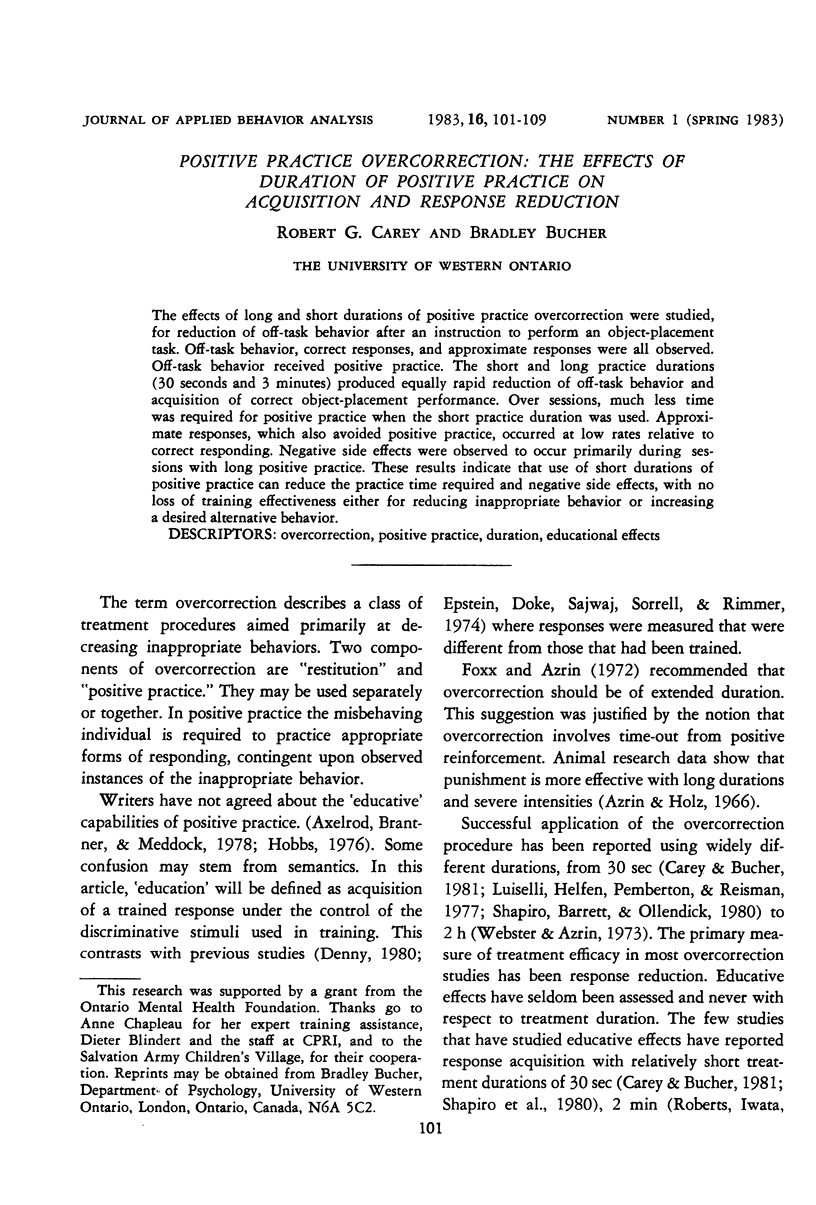
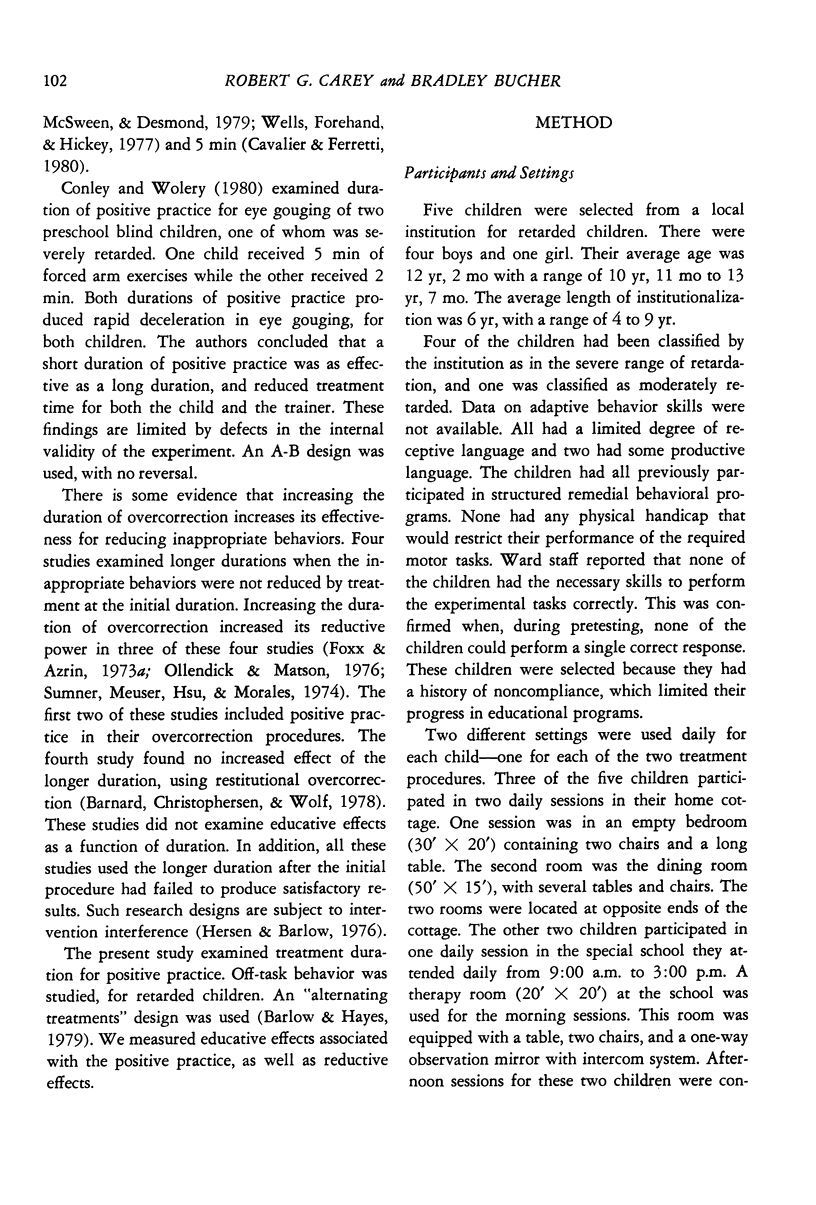
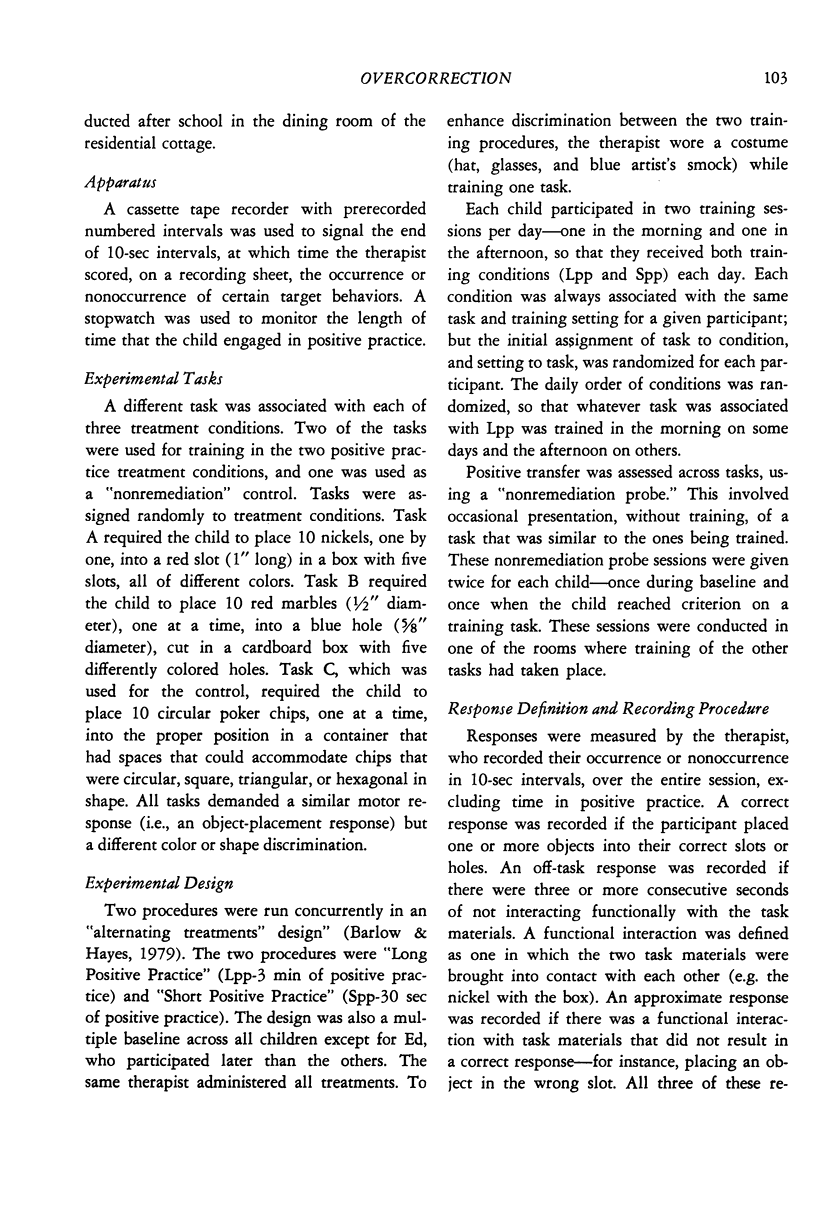
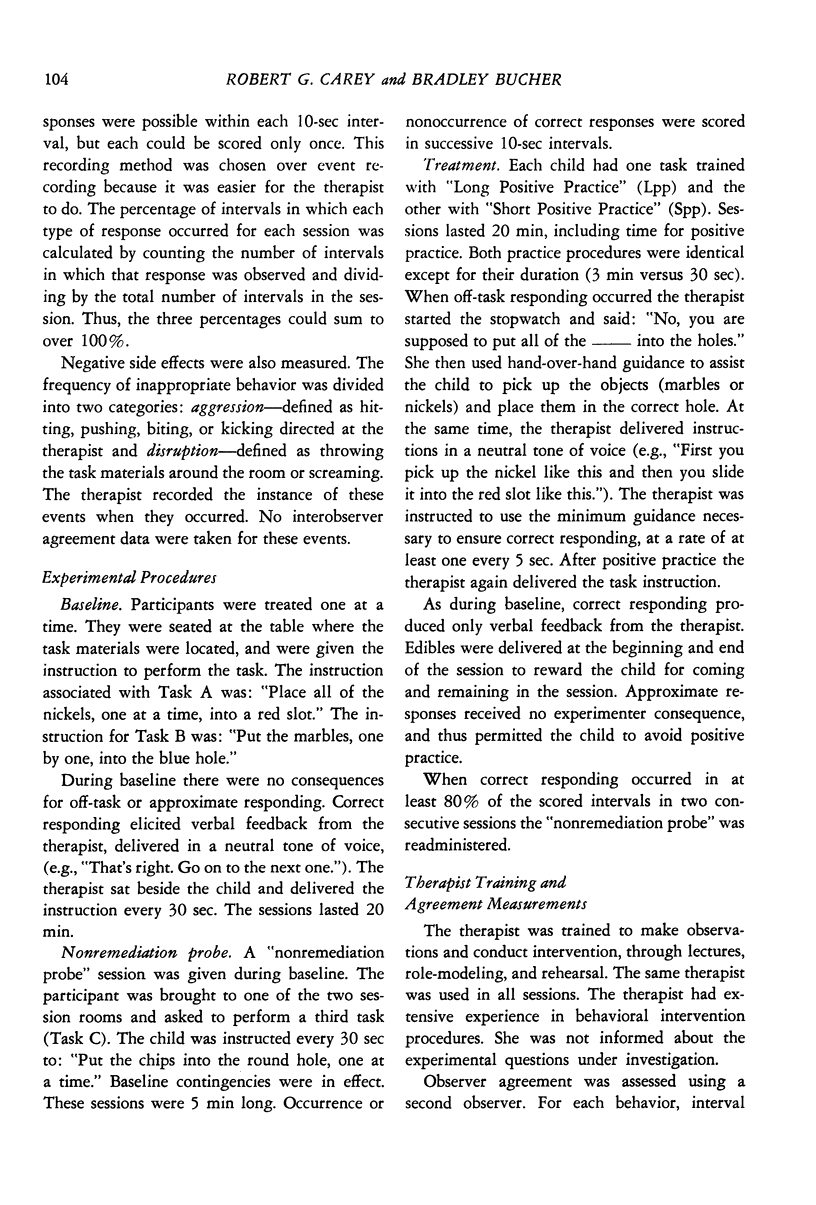
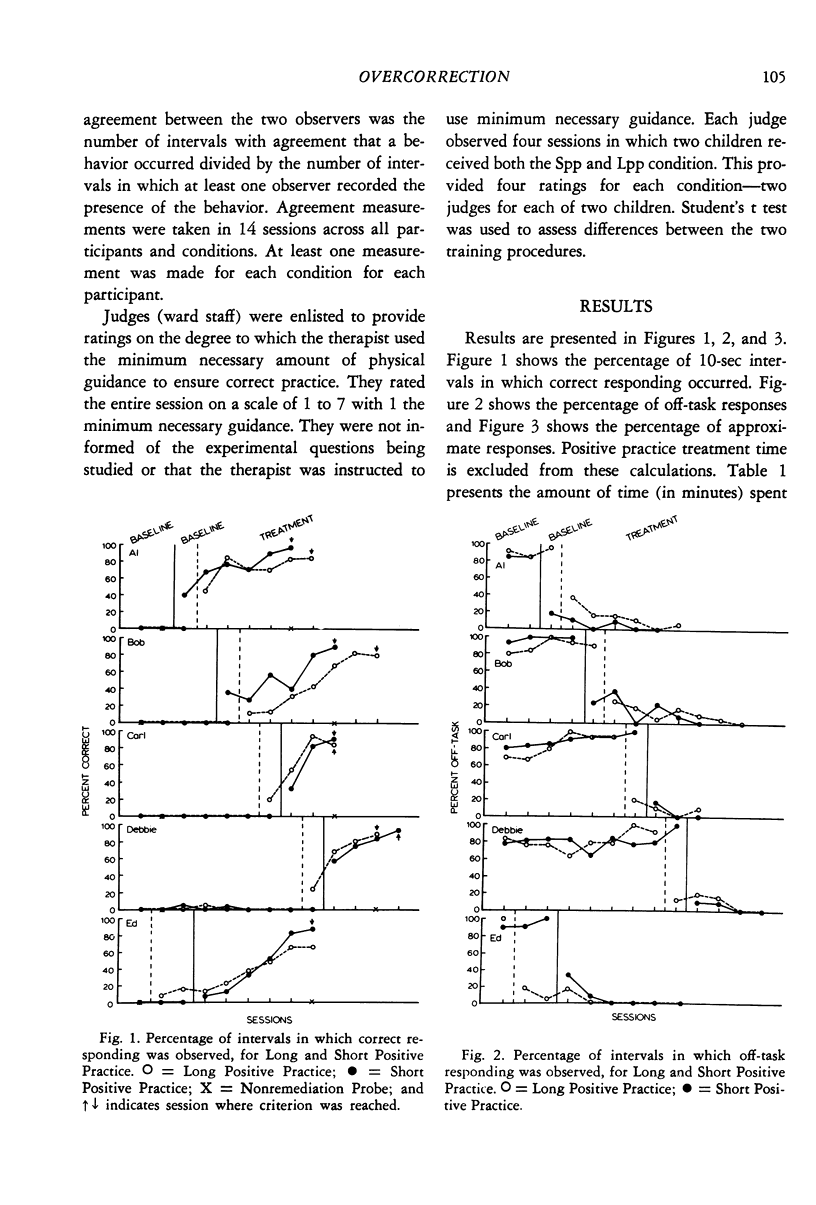
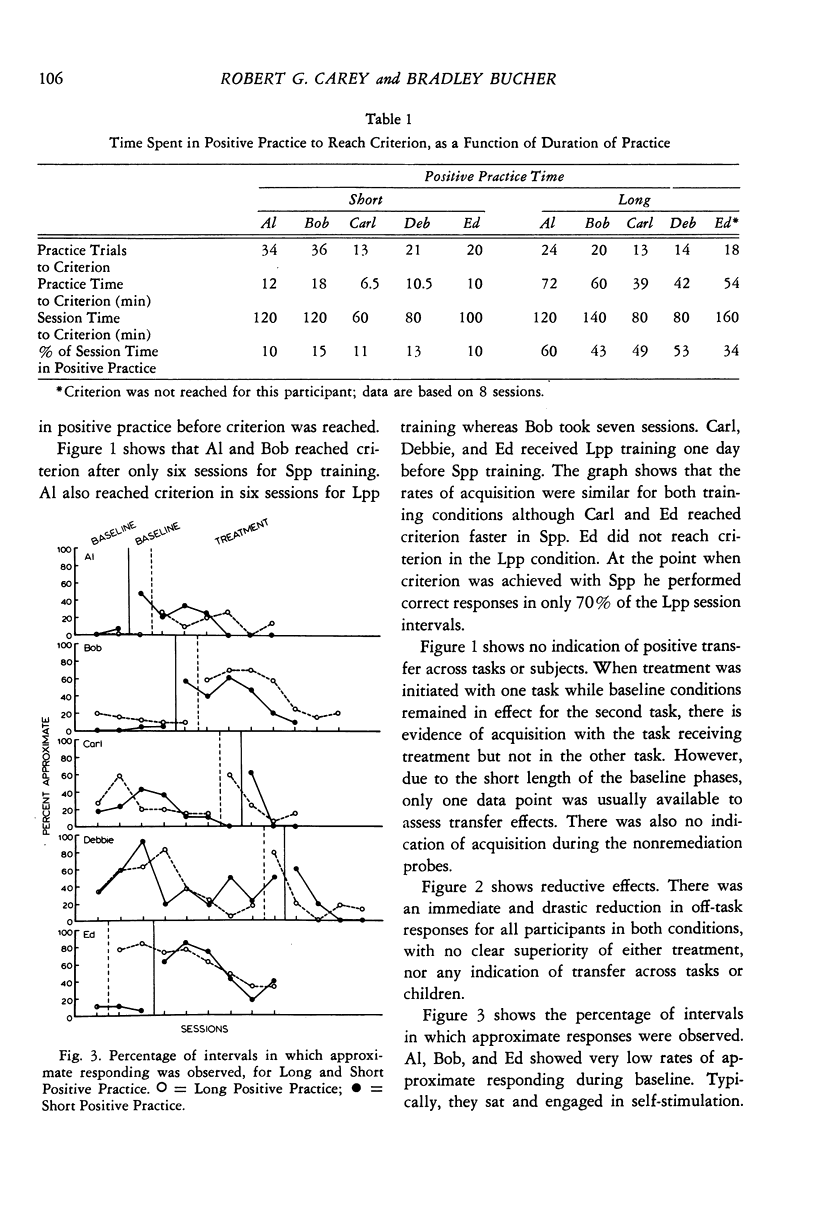
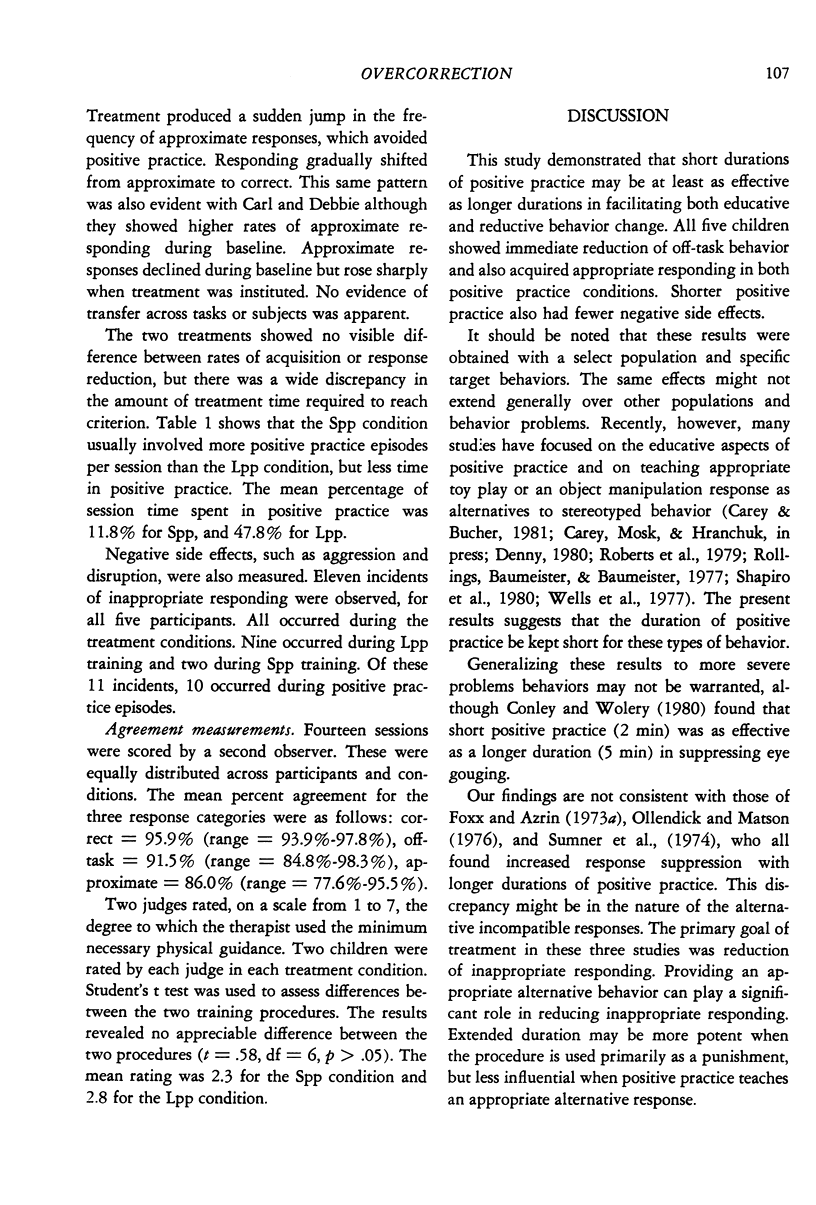
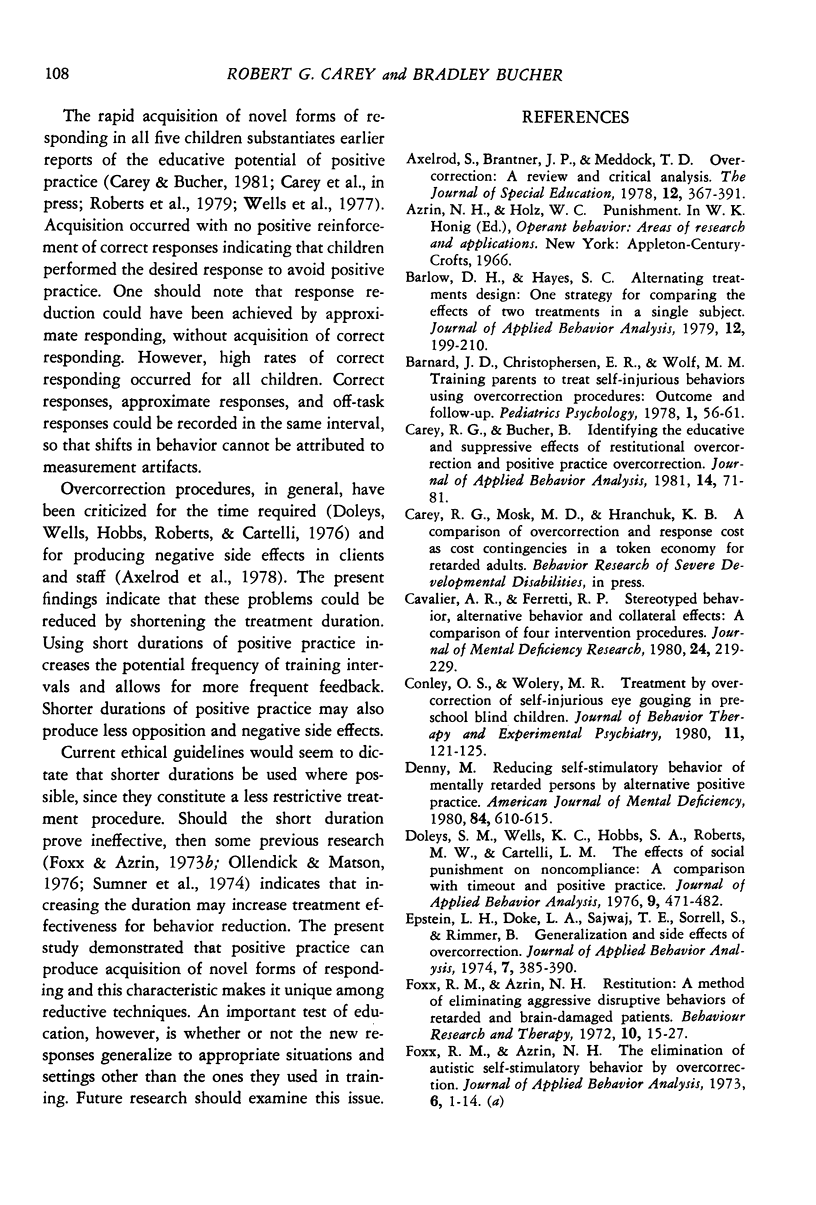
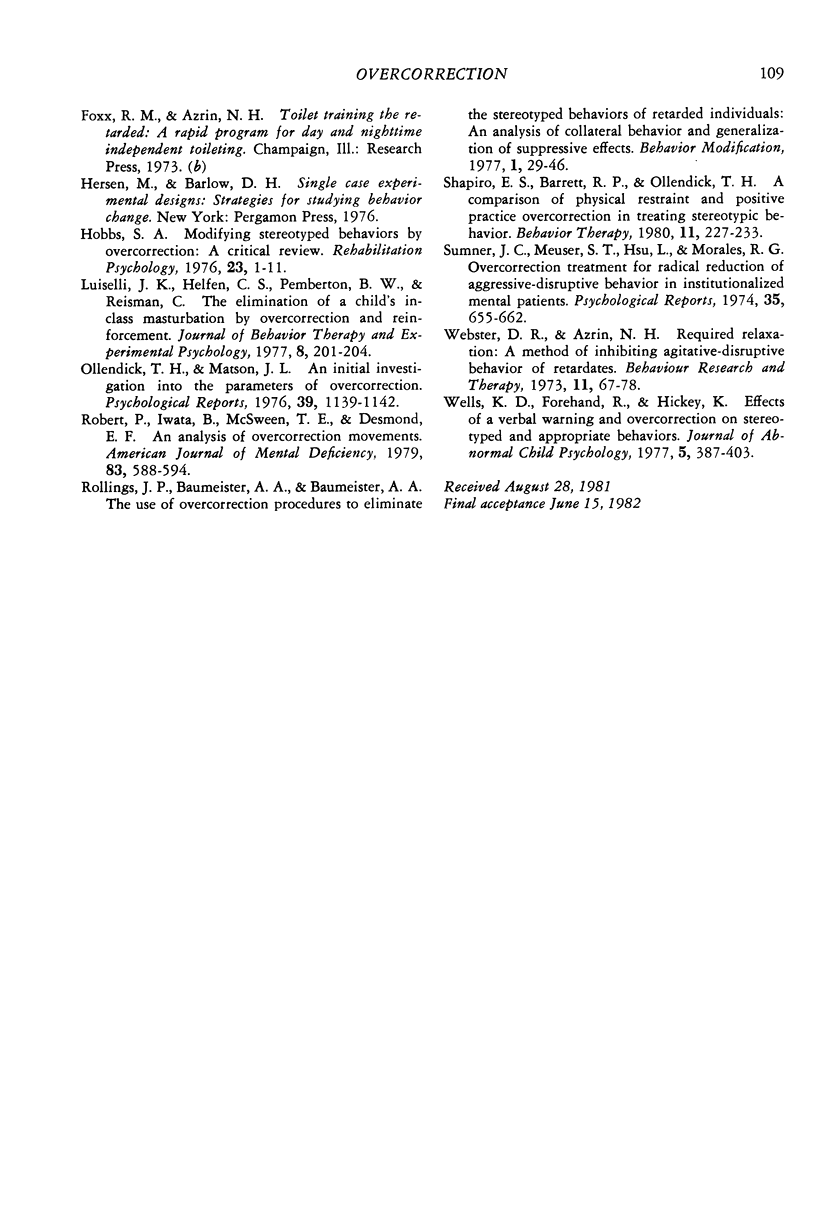
Selected References
These references are in PubMed. This may not be the complete list of references from this article.
- Barlow D. H., Hayes S. C. Alternating treatments design: one strategy for comparing the effects of two treatments in a single subject. J Appl Behav Anal. 1979 Summer;12(2):199–210. doi: 10.1901/jaba.1979.12-199. [DOI] [PMC free article] [PubMed] [Google Scholar]
- Carey R. G., Bucher B. Identifying the educative and suppressive effects of positive practice and restitutional overcorrection. J Appl Behav Anal. 1981 Spring;14(1):71–80. doi: 10.1901/jaba.1981.14-71. [DOI] [PMC free article] [PubMed] [Google Scholar]
- Cavalier A. R., Ferretti R. P. Stereotyped behaviour, alternative behaviour and collateral effects: a comparison of four intervention procedures. J Ment Defic Res. 1980 Sep;24(3):219–230. doi: 10.1111/j.1365-2788.1980.tb00075.x. [DOI] [PubMed] [Google Scholar]
- Denny M. Reducing self-stimulatory behavior of mentally retarded persons by alternative positive practice. Am J Ment Defic. 1980 May;84(6):610–615. [PubMed] [Google Scholar]
- Doleys D. M., Wells K. C., Hobbs S. A., Roberts M. W., Cartelli L. M. The effects of social punishment on noncompliance: a comparison with timeout and positive practice. J Appl Behav Anal. 1976 WINTER;9(4):471–482. doi: 10.1901/jaba.1976.9-471. [DOI] [PMC free article] [PubMed] [Google Scholar]
- Epstein L. H., Doke L. A., Sajwaj T. E., Sorrell S., Rimmer B. Generality and side effects of overcorrection. J Appl Behav Anal. 1974 Fall;7(3):385–390. doi: 10.1901/jaba.1974.7-385. [DOI] [PMC free article] [PubMed] [Google Scholar]
- Foxx R. M., Azrin N. H. Restitution: a method of eliminating aggressive-disruptive behavior of retarded and brain damaged patients. Behav Res Ther. 1972 Feb;10(1):15–27. doi: 10.1016/0005-7967(72)90003-4. [DOI] [PubMed] [Google Scholar]
- Foxx R. M., Azrin N. H. The elimination of autistic self-stimulatory behavior by overcorrection. J Appl Behav Anal. 1973 Spring;6(1):1–14. doi: 10.1901/jaba.1973.6-1. [DOI] [PMC free article] [PubMed] [Google Scholar]
- Morton R. E., DeLuca R. F., Reisman T. N., Rogers A. I. Gastrocolic fistula secondary to benign gastric ulcer not operated upon: case report and review of literature. South Med J. 1977 Feb;70(2):201–204. doi: 10.1097/00007611-197702000-00029. [DOI] [PubMed] [Google Scholar]
- Ollendick T. H., Matson J. L. An initial investigation into the parameters of overcorrection. Psychol Rep. 1976 Dec;39(3 Pt 2):1139–1142. doi: 10.2466/pr0.1976.39.3f.1139. [DOI] [PubMed] [Google Scholar]
- Roberts P., Iwata B. A., McSween T. E., Desmond E. F., Jr An analysis of overcorrection movements. Am J Ment Defic. 1979 May;83(6):588–594. [PubMed] [Google Scholar]
- Sumner J. H., Mueser S. T., Hsu L., Morales R. G. Overcorrection treatment for radical reduction of aggressive-disruptive behavior in institutionalized mental patients. Psychol Rep. 1974 Aug;35(1 Pt 2):655–662. doi: 10.2466/pr0.1974.35.1.655. [DOI] [PubMed] [Google Scholar]
- Webster D. R., Azrin N. H. Required relaxation: a method of inhibiting agitative-disruptive behavior of retardates. Behav Res Ther. 1973 Feb;11(1):67–78. doi: 10.1016/0005-7967(73)90070-3. [DOI] [PubMed] [Google Scholar]
- Wells K. C., Forehand R., Hickey K. Effects of a verbal warning and overcorrection on stereotyped and appropriate behaviors. J Abnorm Child Psychol. 1977 Dec;5(4):387–403. doi: 10.1007/BF00915087. [DOI] [PubMed] [Google Scholar]


